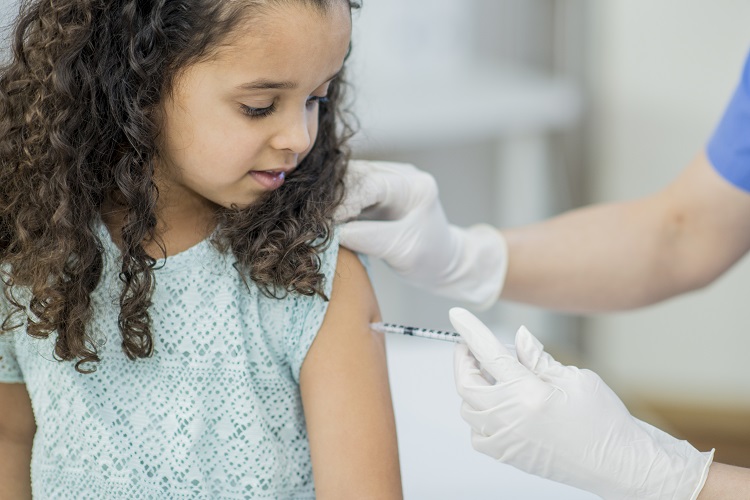20 August 2019
Vaccinating children in schools against influenza results in greater vaccine uptake, with less variation between sites and by age group compared to programmes delivered through GPs and pharmacies, according to a new study by researchers from Public Health England, NHS England and the University of Bristol, UK.

The observational study published in Journal of Public health used surveillance data from the Public Health England South West Centre for the 2015/16 influenza season.
Dr Julie Yates, Lead Consultant for Screening and Immunisation, said: “The South West was one of the few regions in England in which the 2015/16 childhood influenza vaccine was delivered through a range of commissioned provider types depending on the locality. This provided an ideal opportunity to evaluate the comparative effectiveness of these options to inform commissioning for our local population and also to add to the wider evidence base.”
Researchers investigated vaccine uptake among eligible five- and six year-old children, to look for differences by the three types of provider: school- based vaccination teams, General Practices (GPs) and community pharmacies.
Data were available for 771 sites, comprising 393 GPs, 302 schools and 76 pharmacies which included 54,992 children aged five and 54,412 children aged six.
The highest overall vaccination rates were achieved through school-based programmes. Rates were lower in areas which offered vaccination by GPs and lower still in areas offering pharmacy-based vaccination. Vaccination uptake varied between sites for all commissioned providers but after accounting for differences in age-group mix and levels of deprivation, there was much less variation in school-based programmes compared to the other delivery programmes.
Dr Hannah Christensen, from the NIHR Health Protection Research Unit in Evaluation of Interventions at the University of Bristol, and a lead author of the study, said: “This study adds important new evidence about vaccine uptake in young children, and the influence of age, deprivation and the type of vaccine provider.
“Importantly, our findings show that school-based provision can achieve equal vaccination uptake for both five and six year-olds, in contrast to GP and pharmacy provision where uptake was slightly lower for six year-olds. We also found that school-based provision achieved higher vaccine uptake in the more deprived areas – on average vaccine uptake was higher in schools-based programmes in the most deprived areas than in GP programmes in the most affluent areas.
Dr Rachel Kwiatkowska, from Public Health England’s National Infection Service, added: “Equitable delivery is a key aim of the national vaccination programme and our study supports the decision across most of England to commission school-based providers for higher and more consistent delivery of the childhood flu vaccine.
“Our next challenge is to level out the differences in vaccine uptake associated with socioeconomic status. According to our results, parents in more deprived areas were less likely to return completed consent forms which could provide clues to help reduce inequalities in uptake.”
Read the paper: Influence of commissioned provider type and deprivation score on uptake of the childhood flu immunization. Christensen H, Reynolds R, Kwiatkowska R, Brooks-Pollock E, Dominey M, Finn A, Gjini A, Hickman M, Roderick M, Yates J. J Public Health (Oxf). 2019 Jun 12. pii: fdz060. doi: 10.1093/pubmed/fdz060
Further information
About the NIHR HPRU in Evaluation of Interventions at the University of Bristol
The Health Protection Research Unit (HPRU) in Evaluation of Interventions, based in Population Health Sciences at the University of Bristol, is part of the National Institute for Health Research (NIHR) and a partnership between University of Bristol and Public Health England (PHE), in collaboration with University College London, Cambridge Medical Research Council (MRC) Biostatistics Unit and University of the West of England. We are a multidisciplinary team undertaking applied research on the development and evaluation of interventions to protect the public’s health. Our aim is to support PHE in delivering its objectives and functions. Our focus is on the PHE priority area of infection. Follow us on Twitter: @HPRU_EI